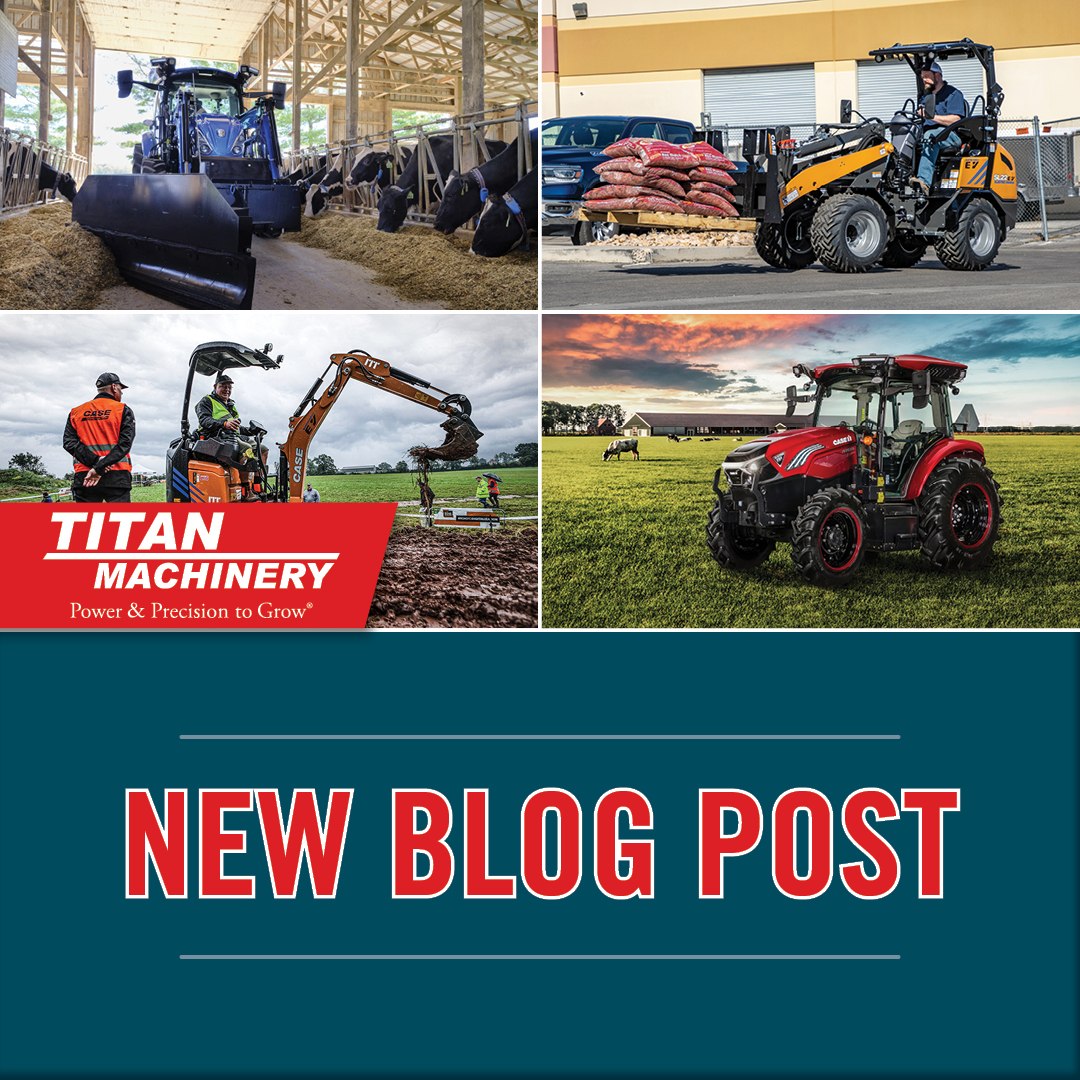
Electric equipment. It looks slick, is definitely trending, and is often labeled "the future." Nevertheless, it's no secret it also garners little genuine interest from audiences like cash crop and livestock farmers or throughout larger construction operations. Realistically, it often elicits disdain and pushback on the initiatives altogether.
We acknowledge that. We know some things can be chalked up to buzzwords in sustainability or just aren't practical right now. Yet even still, we would be remiss in neglecting the applications electric equipment does have and will continue to grow into. This technology, like most, has a time and place, even if that time and place is a small percentage of what we do.
It's Not Diesel vs Electrical; It's Diesel and Electrical
The first and most important thing to note is that the advancement of electrical equipment does not mean it's attempting to replace the current industry or pretend as if it can power larger operations. In fact, we've already been co-existing with the development of electrical equipment in relevant applications for over a decade now. It's been employed and continuously grown inside North American mines since the 1990s and, as a result, has drastically improved miners' safety and health risks, operational costs, and environmental efficiency. Hopefully, this can serve as some assurance that it is not intended to replace diesel and is not here to force the adoption of new practices.
Instead, electrical equipment being developed helps us:
- Serve other areas of the industry that may be less quickly considered when this discussion comes up. Electric batteries are quiet, have low vibrations, and produce zero emissions. Because of these attributes, operators of electric-powered equipment can go where traditional diesel machines maybe can't, whether that's indoor or underground job sites, projects around immunocompromised populations, such as near hospitals, around animals and food, where you don't want fumes, or operations taking place at night. Some contracts even require electric-powered equipment, and we want to be prepared for that number to grow. Thus, the CASE CX15EV Electric Mini Excavator, 580EV Loader Backhoe, and SL22EV Electric Small Articulated Loader, and the Farmall 75C Electric or New Holland T4 Electric Utility Tractors are just a few solid examples of machines ready to work for you; inside or out.
- Take advantage of those applications where electrical equipment makes sense so we can advance the technologies and features for a better product. The development of current technology, which we rely on and appreciate, has not been without challenges; however, every technological leap forward began with individuals who invested in it and, therefore, steered the direction of its progress.
- Supplement existing operations that can benefit from diesel and electric machines progressing and existing parallel. The two don't need to be opposing practices. Rather, we can use them together on one job site and still experience the benefits of improved efficiency, decreased overall cost, and better flow.
- Demonstrate there is more than one way of doing things. This means opening our minds just enough to ask ourselves, "What can we do now with these technological advancements that we couldn't before?"
The Learning Curve vs Long-Term Cost
Yes, refueling a machine with electricity will mean more frequently charging up, perhaps a few times a day at shorter and quicker intervals, or having it consistently hooked up on the grid overnight. That IS a considerable change, and it will be more expensive upfront.
However, we can also acknowledge that this practice, once past the learning curve, additionally results in lower operating costs, saving as much as 90% on annual vehicle, fuel, and maintenance expenses. No noise, no exhaust, no diesel to fill, no DEF fluid, no engine oil changes. When you put all the numbers on paper, long-term savings are substantial. Even if you're only saving a fraction of that by utilizing diesel and electric-powered equipment together, you're still saving, and that's money back in your pocket.
In terms of charge frequency, it's also worth reporting that for some job sites and applications, operators only register a few hours of true machine run time, meaning, in reality, recharging is less frequent than we might assume. In the case of the Case IH Farmall 75C, operators have four hours of loader time and, with the DC fast charging feature, can recharge from 10% to 80% in less than an hour. Depending on the application, the CX15EV, 580EV, and SL22EV also provide anywhere from 4-8 hours of power to get operators through the average work day.
The Bigger Picture
The electric-powered machines currently on the market are best suited for smaller utility work, not heavy-duty applications, with the exception of the mining industry. This is widely agreed upon by those on the ground and those selling and manufacturing them. Diesel will remain the preferred power source in many operations; however, even large contractors and farmers have utility operations that need to be done. In those instances, electric machines not only fit very well—they may even be a better fit.
We invite you to take a step back from electrification specifically and look at the bigger picture of where our society's technological advancements are going and how we can use them as tools. Take a moment to even reflect on the advancement of precision technology across the last 10 years. We can't deny the significant benefits utilizing precision technology has contributed to quality of work, hiring of new operators, efficiency, safety, and more. Now, with that same lens, look forward 10-15 years. The investment in electrical technology now might help it find its place in the right applications for the future, too, and we have the opportunity to steer that advancement in ways that will benefit us by engaging with it.
Ask yourself, "Where is this already going, and how can I prepare myself through education or job training?"
Interested in learning more? Connect with us below!
Request More Information
Follow Titan Machinery!